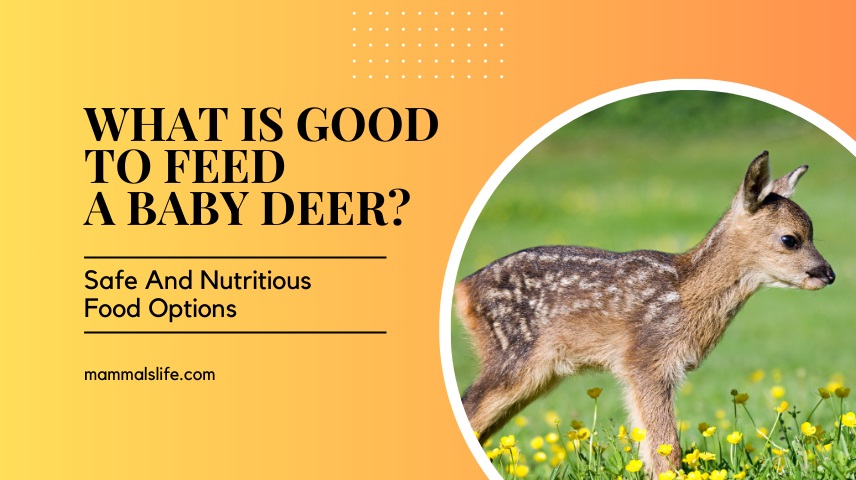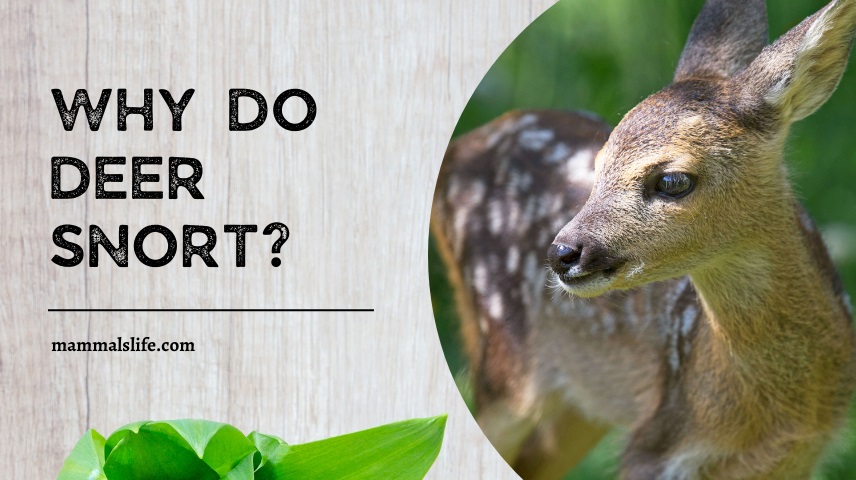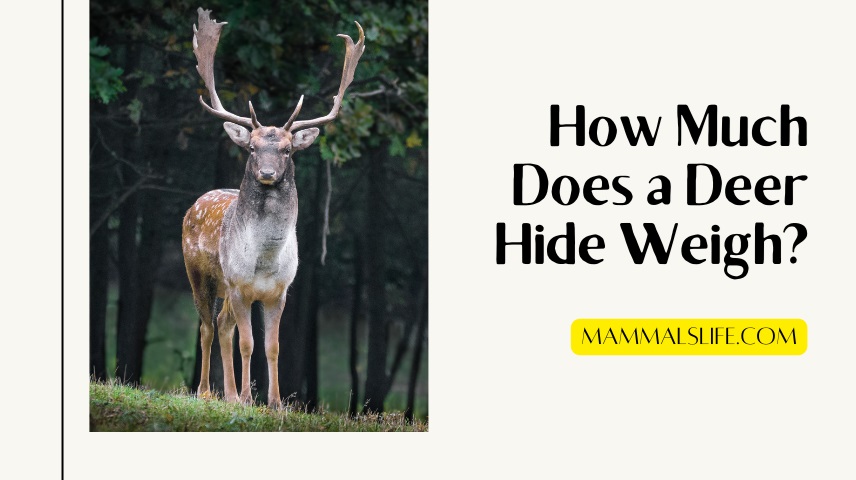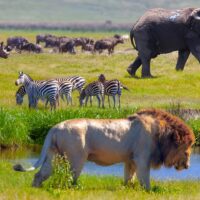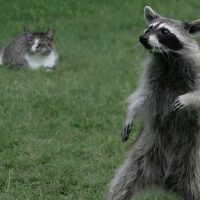Last Updated on February 22, 2025 by Mammals Life
Baby deer, also known as fawns, can be fed goat milk or specially formulated fawn milk replacer. Avoid cow milk as it can cause digestive issues.
Feeding a baby deer requires careful attention to their nutritional needs. Fawns rely heavily on their mother’s milk for the first few weeks of life. Goat milk or a specifically designed fawn milk replacer is the best alternative if the mother is unavailable.
These options provide essential nutrients that mimic the natural composition of doe’s milk. As fawns grow, introducing soft, leafy greens and deer pellets can help transition them to solid foods. Always ensure fresh water is available. Proper feeding practices support healthy growth and development, ensuring the fawn thrives.
Introduction To Baby Deer Nutrition
Feeding a baby deer the right food is crucial. They need specific nutrients to grow strong and healthy. This guide helps you understand what is safe and nutritious for them.
Importance Of Proper Diet
A proper diet ensures a baby deer grows well. They need food rich in vitamins, minerals, and proteins. Good nutrition boosts their immune system.
Risks Of Inadequate Nutrition
Feeding the wrong food can harm baby deer. Poor nutrition can stunt their growth. They may become weak and prone to diseases.
| Type of Food | Benefits |
|---|---|
| Milk Formula | Provides essential nutrients and antibodies |
| Fresh Vegetables | Rich in vitamins and minerals |
| Fruits | High in fiber and natural sugars |
- Milk Formula: Use a formula made for fawns. It mimics their mother’s milk.
- Fresh Vegetables: Offer carrots, spinach, and kale.
- Fruits: Give them apples, bananas, and berries.
- Avoid feeding processed foods.
- Ensure fresh water is always available.
- Consult a vet for specific dietary needs.
Read More – What to Feed a Deer in the Winter? Safe And Nutritious Winter Feeding Options
Natural Food Sources
Feeding a baby deer with natural food sources is crucial for its growth. The right food helps the fawn develop strong bones and a healthy body. Below are some natural food sources for baby deer, starting with the most essential: mother’s milk.
Mother’s Milk
The first and most important food for a baby deer is its mother’s milk. This milk provides all the necessary nutrients a fawn needs in its early life. The colostrum in the milk boosts the fawn’s immune system.
Here are some key benefits of mother’s milk:
- Rich in nutrients: Contains proteins, fats, and vitamins.
- Boosts immunity: Colostrum helps fight infections.
- Promotes growth: Essential for bone and muscle development.
Transition To Solid Foods
As the baby deer grows, it starts to eat solid foods. This usually begins at about 3-4 weeks of age. The transition is gradual, and the fawn will still nurse during this period.
Here are some natural solid food options for a baby deer:
| Food | Benefits |
|---|---|
| Fresh leaves | Provide essential vitamins and minerals. |
| Grass | Rich in fiber, aids digestion. |
| Fruits | Source of natural sugars and vitamins. |
| Twigs and bark | Good for teeth development and nutrients. |
These foods help the baby deer develop strong and healthy bodies. Always ensure the food is clean and free from pesticides.
Read More – What to Feed Deer Instead of Corn? Best Practices for Sustainable Deer Feeding
Safe Plant-based Foods
Feeding a baby deer requires knowledge of safe plant-based foods. These foods help the baby deer grow strong and healthy. Below, we’ll discuss two main categories: leafy greens and fruits and berries.
Leafy Greens
Leafy greens are essential for a baby deer’s diet. They provide vital nutrients and fiber.
- Spinach: Rich in vitamins and minerals.
- Kale: High in calcium and antioxidants.
- Romaine Lettuce: Easy to digest and hydrating.
- Dandelion Greens: Contains vitamins A, C, and K.
Offer these greens in small, chopped pieces. Ensure they are free from pesticides.
Fruits And Berries
Fruits and berries add variety and nutrition. They are rich in vitamins and natural sugars.
- Apples: Slice into small pieces, and remove seeds.
- Blueberries: Packed with antioxidants.
- Strawberries: High in vitamins C and K.
- Pears: Soft and easy to chew.
Feed fruits and berries in moderation to avoid overfeeding sugars. Always wash them thoroughly before serving.
Grains And Seeds
Feeding a baby deer the right grains and seeds is crucial for their growth. These foods provide essential nutrients that support their development. Let’s explore the different types of grains and seeds and their nutritional benefits for baby deer.
Types Of Grains
Grains are a great source of energy for baby deer. Here are some safe options:
- Corn: Provides high energy and is easy to digest.
- Oats: Rich in fiber and help with digestion.
- Barley: Contains essential vitamins and minerals.
- Rice: Offers a good balance of carbohydrates and protein.
Nutritional Benefits
Grains and seeds are packed with nutrients that are vital for baby deer. Here are some benefits:
| Grain/Seed | Key Nutrients | Benefits |
|---|---|---|
| Corn | Carbohydrates, Protein | High energy, muscle growth |
| Oats | Fiber, Vitamins | Improves digestion, boosts immunity |
| Barley | Minerals, Vitamins | Strengthens bones, supports metabolism |
| Rice | Carbohydrates, Protein | Balances diet, provides energy |
Incorporating these grains into the diet can help baby deer thrive. Always ensure the grains are fresh and free from mold. Providing a balanced diet with these grains ensures the healthy growth of baby deer.
Read More – Why Do Deer Snort? The Science And Instincts Behind Deer Snorting Behavior
Commercial Deer Feeds
Feeding a baby deer with commercial feeds can be a safe option. These feeds are specially formulated to meet the nutritional needs of deer. They often contain a balanced mix of proteins, vitamins, and minerals. This helps in ensuring the healthy growth of the baby deer.
Selecting Quality Feeds
Choosing the right commercial deer feed is essential. Look for feeds that list whole grains and natural ingredients. Avoid feeds with artificial additives or preservatives. Always check the expiration date on the package.
A good-quality feed will also have a proper balance of nutrients. This includes proteins, carbohydrates, fats, vitamins, and minerals. Here is a table to help you understand what to look for:
| Nutrient | Importance |
|---|---|
| Protein | Essential for growth and muscle development |
| Carbohydrates | Provide energy for daily activities |
| Fats | Support overall health and energy storage |
| Vitamins | Boost immunity and support bodily functions |
| Minerals | Strengthen bones and teeth |
Feeding Guidelines
Follow feeding guidelines for the best results. Start with small amounts and gradually increase the quantity. Observe the baby deer to ensure it is eating well.
Always provide fresh water along with the feed. Deer need plenty of water to digest their food properly. Keep the feeding area clean to prevent contamination.
Use a feeder that allows easy access for the baby deer. Ensure the feeder is at a comfortable height. This prevents the deer from straining while eating. Here is a simple feeding schedule:
- Morning: A small portion of commercial feed
- Afternoon: Fresh water and a small snack
- Evening: A larger portion of commercial feed
Monitor the deer’s health regularly. Adjust the feeding amounts as the deer grows. Consult a veterinarian for personalized advice.
Hydration Needs
Ensuring proper hydration for a baby deer is crucial for their health and growth. Just like other animals, baby deer need water to survive and thrive. In this section, we will explore the importance of water and safe water sources for baby deer.
Importance Of Water
Water is essential for a baby deer’s overall well-being. It helps with digestion, nutrient absorption, and temperature regulation. Without adequate water, baby deer can become dehydrated and weak.
Dehydration can lead to serious health issues. It is important to provide fresh water daily. This ensures they stay hydrated and healthy.
Safe Water Sources
Providing safe water sources for baby deer is vital. Contaminated water can cause illness and infections.
Here are some safe water sources:
- Clean Bowls: Use clean, shallow bowls for water.
- Natural Springs: If accessible, use natural springs or streams.
- Filtered Water: Ensure the water is filtered and free from chemicals.
Make sure to clean the water bowls regularly. This prevents the growth of bacteria and algae. Always monitor the water quality to keep the baby deer safe and healthy.
Frequently Asked Questions
What Can I Feed A Wild Baby Deer?
Feed a wild baby deer goat milk replacer or a wildlife rehabilitator-approved formula. Avoid cow’s milk, as it causes digestive issues.
What Is The Safest Thing To Feed Deer?
Feed deer natural foods like acorns, apples, and leafy greens. Avoid processed foods and corn.
What Is A fawn’s Favorite Food?
A fawn’s favorite food includes mother’s milk, tender leaves, grass, and small plants. They also enjoy berries and acorns.
How To Care For An Abandoned Baby Deer?
Call a wildlife rehabilitator immediately. Keep the baby deer warm and quiet. Avoid feeding it without expert advice. Do not handle it excessively. Monitor its condition closely.
What Does Baby Deer Eat?
Baby deer typically eat their mother’s milk, grass, and soft leaves.
Can Baby Deer Eat Fruits?
Yes, baby deer can eat fruits like apples and berries in small amounts.
Conclusion
Feeding a baby deer requires a careful selection of safe and nutritious foods. Fresh fruits, vegetables, and specialized deer milk replacers are ideal. Always consult with a wildlife expert to ensure proper care. Providing the right diet helps baby deer grow healthy and strong.
Remember, a balanced diet is key to their development.

